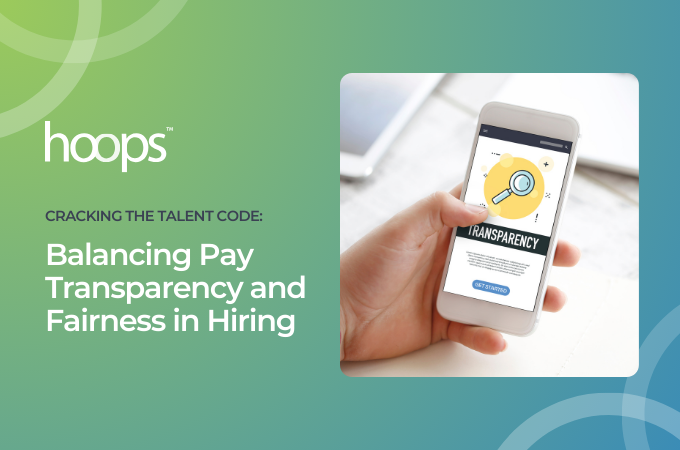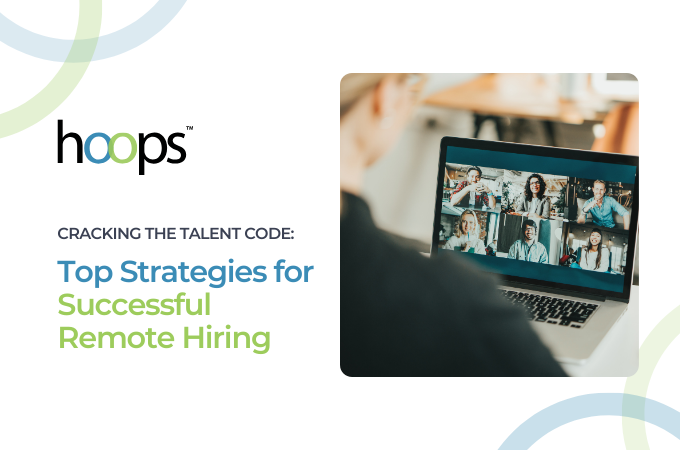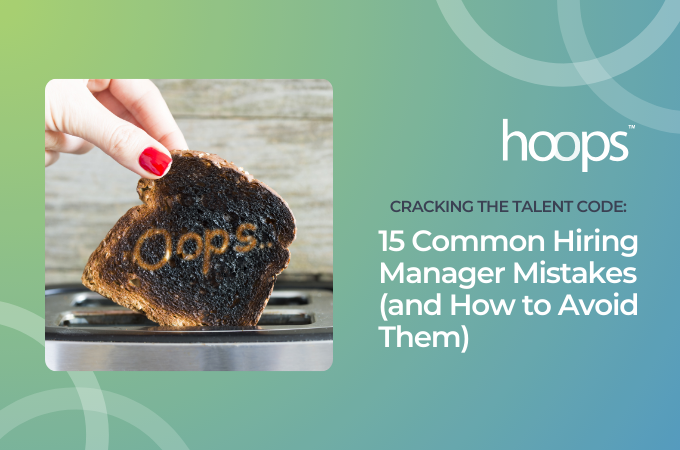Finding the best candidate for the job can feel like a guessing game, right? With endless resumes to sift through and countless interviews to conduct, how do you know you’re choosing the best fit for your team? It’s not just about technical skills or experience—it’s about evaluating how well a candidate will integrate into your team and align with your company’s values.
And here’s the shocking stat: 89% of hiring failures are due to poor cultural fit, not a lack of skills, according to a study of over 20,000 employees by Leadership IQ.
In this article, we’ll show you how to assess job candidates more effectively—from asking the right questions to evaluating cultural fit. You’ll walk away with practical, actionable tips to make confident decisions and hire the best talent for your team.
The Importance of Evaluating Interviews for Hiring
It’s no secret—interviews are one of the most important steps in hiring. But how you evaluate them makes all the difference. While intuition can play a role, relying solely on gut feelings or a vague sense of "chemistry" during interviews often leads to subjective decisions that don’t reflect a candidate’s true potential. Evaluating candidates effectively helps you determine not just if they can do the job, but if they’ll thrive in your workplace culture and contribute to your team’s long-term success. The more structured and objective your approach, the clearer your decision-making process will be.
Common Interview Evaluation Methods
So, how do you go about evaluating the candidates you interview? There are many methods out there, but let’s cut through the noise and focus on the ones that work. Here are the most common evaluation techniques used by successful hiring managers:
-
Rating Scales: This method helps you score candidates on specific criteria, avoiding subjective comparisons between candidates. A clear scorecard ensures objectivity and consistency in your evaluations, preventing you from unfairly favoring certain candidates or making decisions based on gut feeling alone. Make sure your scale is well-defined so you aren’t comparing apples to oranges.
-
Panel Interviews: Bringing in multiple interviewers provides a broader perspective and helps reduce individual bias. Panel members can discuss their impressions to reach a more balanced decision. However, limit the number of interviewers to two at a time to avoid overwhelming the candidate or making them feel uncomfortable.
-
Structured Interviews: This type of interview involves asking each candidate the same set of questions. It’s one of the most effective ways to ensure you're comparing candidates fairly. Structured interviews remove the biases that unplanned, conversational interviews can introduce, making your evaluation process more consistent and reliable.
Each of these methods helps you dig deeper than surface-level responses, which is exactly what you need when evaluating the best fit for your team.
💡Pro Tip: Unstructured, overly conversational interviews might seem like a relaxed way to get to know a candidate, but they often don’t provide the deep insights you need. While casual conversations can help build rapport, they should never be your main evaluation method. A more structured, focused approach will help you make better, more objective decisions.
Key Traits and Skills to Assess During Interviews
To hire the right candidate, focus on both hard skills and soft skills. While technical expertise is essential, these other traits are just as important:
- Problem-Solving Ability: Every role comes with challenges. Look for candidates who can think on their feet and find solutions. Ask them to share specific examples where they solved a problem creatively or efficiently.
- Teamwork and Collaboration: How well do they work with others? Do they contribute positively to team dynamics and collaborate effectively? Ask them to describe a time they worked with a team to achieve a goal.
- Adaptability: Can they handle change? How quickly do they pivot when things don’t go as planned? Ask for an example of a time they had to adapt quickly to a new situation or challenge.
- Work Ethic and Drive: It’s not just about how hard someone works—it’s about their motivation to go the extra mile. Ask them to share a story where they pushed themselves to deliver results, even when faced with adversity.
- Emotional Intelligence: Understanding and relating to others is crucial in any role. Look for candidates who are self-aware, empathetic, and can remain composed under stress. Ask how they've handled emotionally charged situations in the past.
💡Pro Tip: Pay attention to the questions candidates ask you during the interview. Great candidates will ask insightful questions about the role, your company, and your culture. Their questions reveal their interest, enthusiasm, and critical thinking, giving you a better idea of how they view the job and how proactive they are.
Behavioral Interview Questions and Their Significance
We’ve all heard the classic “Tell me about a time when you…”—and for good reason! Behavioral questions are one of the best ways to understand how candidates handle challenges. They give you deeper insight into their problem-solving abilities, collaboration skills, and how they make decisions under pressure.
Instead of asking a simple “Do you work well under pressure?” (which typically gets a yes/no answer), try these more revealing questions:
- "Tell me about a time when you had to meet a tight deadline. How did you manage it?"
- "Give me an example of a difficult problem you solved in your last role. How did you approach it?"
💡Pro Tip: Behavioral questions give you a glimpse into a candidate’s past actions—an excellent predictor of future behavior. On the other hand, situational (hypothetical) questions often lead to ideal, rehearsed answers and don’t offer the same real-world insight. (For more on asking the best interview questions, check out our blog on the Top Interview Questions to Assess Candidates' True Potential.)
Evaluating Cultural Fit During Interviews
Culture fit is often overlooked, but it's one of the most important factors in hiring success. It’s not just about technical skills—the right candidate must also mesh with your team and align with your company values. Poor cultural alignment can lead to disengagement, higher turnover, and unnecessary friction. So, how do you assess cultural fit? Here’s how:
- Ask about their work environment preferences: Questions like, “Walk me through your ideal workday. What does it look like?” or “What type of team environment do you thrive in?” can reveal valuable insights into their work style.
- Assess alignment with company values: Questions like, “What do you like most about your current work environment?” or “If you could change a few things about your role, what would they be and why?” let candidates share their values in a natural, unfiltered way.
- Focus on diversity in cultural add: Remember, cultural add isn’t just about fitting into the existing culture—it’s about someone who brings fresh perspectives, ideas, and diverse approaches to the table. Look for candidates who will not only fit but help evolve your work culture.
- Look for red flags around values misalignment: It's equally important to identify when a candidate's values don’t align with yours. Ask about past team experiences where they were dissatisfied. If they blame others or the organization for the misalignment, it could be a sign that they may resist cultural adjustments.
Look for candidates who demonstrate openness, alignment with your organization’s mission, and an understanding of your workplace culture.
Techniques for Evaluating Communication Skills
Strong communication skills are vital for most roles. During interviews, it’s important to evaluate not just how candidates speak, but also how they listen and respond. Are they clear and concise? Do they listen actively and answer thoughtfully?
Here are a few techniques to assess communication skills:
- Ask candidates to explain a complex or technical concept in simple terms to gauge their clarity and ability to simplify information.
- Observe their body language, tone, and how they articulate their thoughts. Are they confident and engaged?
- Look for signs of active listening—do they pause to reflect before answering, and do they ask follow-up questions?
Great communication skills are crucial for collaboration, problem-solving, and leadership, so pay close attention to how they express themselves.
The Role of Body Language in Interview Evaluations
While it’s easy to focus solely on what a candidate says, their body language often provides critical insight. Non-verbal cues—such as eye contact, posture, and facial expressions—can reveal confidence, discomfort, and even honesty. Here’s what to pay attention to during an interview:
- Eye Contact: Candidates who maintain good eye contact are typically confident and engaged, while avoiding eye contact might suggest discomfort or a lack of transparency.
- Posture: Open, relaxed posture (e.g., uncrossed arms and legs) signals engagement and confidence. Conversely, closed-off posture could indicate defensiveness or anxiety.
- Facial Expressions: Subtle facial cues, such as a smile or a nod, can show whether the candidate is genuinely engaged and interested in the conversation.
- Gestures: Hand movements can emphasize points, but excessive or nervous gestures might suggest unease or an attempt to cover up a lack of confidence.
While body language provides valuable insights, keep in mind that candidates are often nervous during interviews—this is completely natural and doesn’t necessarily mean they lack the skills or confidence needed for the role. It’s important to look at body language as one piece of the puzzle, not the sole determinant of a candidate’s potential.
Interview Evaluation Tools and Software
In today’s digital age, leveraging interview evaluation tools and software is crucial for streamlining the hiring process and making data-driven, objective decisions. These tools help you assess candidates more efficiently, track interview feedback from multiple interviewers, and ensure consistency across evaluations. Here's how you can optimize modern hiring technology to find the best candidate:
- Applicant Tracking Systems (ATS): A well-organized ATS, like the one offered by Hoops, helps you track and manage candidates from application through interview evaluation. Hoops’ AI-powered resume matching and scoring system ranks candidates based on their fit for the role, saving time by highlighting the most relevant applicants. Automated ranking based on a well-crafted job description helps avoid subjective comparisons, ensuring your evaluations are based on specific, role-tailored criteria.
- Skills-Based Assessments: These tools allow you to assess a candidate's technical abilities in real-time, giving you deeper insights into their practical skills. For instance, coding tests for software developers or problem-solving exercises for project managers enable you to evaluate a candidate's ability to perform job-specific tasks. This type of assessment ensures that your hiring decisions are based on their real-world capabilities, not just interview performance. There are many industry-specific assessments available, and platforms like TestGorilla offer a great starting point for a variety of basic skills tests.
- Personality-Type Assessments: Tools like DISC help reveal natural behaviors, such as whether a candidate is more analytical (ideal for detail-oriented roles) or highly social (great for people-oriented roles). These assessments ensure candidates' natural tendencies align with the role's requirements and your team’s culture, reducing the risk of cultural misalignment and helping you build a diverse, high-functioning team.
- Interview Scorecards: Interview scorecards bring structure and consistency to your evaluation process. By rating candidates on specific, predetermined criteria (e.g., communication, problem-solving, technical skills, and cultural fit), you can eliminate subjectivity and focus on what truly matters. Tailor the scorecard to the role and ensure interviewers take detailed notes, rating candidates immediately after the session to avoid biases. Lastly, keep your scorecard simple with 5-10 key traits and a 1-5 rating scale to ensure easy comparison across candidates.
- Reference Checks & Background Screenings: These tools are essential for validating the information provided by candidates and ensuring they align with your organizational standards. Reference checks provide insights into a candidate’s past performance, while background screenings verify qualifications and history. Both are crucial in ensuring your candidate is a true match for the role and company culture.
Key Questions to Ask Yourself Before Making a Hire
Before offering a role to any candidate, it's crucial to be able to confidently answer five key questions:
- Can they do the job? This is the most basic but crucial question. Are their skills and experience sufficient, or do they have transferable skills that can be developed with training?
- Are they motivated? Motivation is just as important as skill. Will the candidate’s drive fuel long-term success and contribute meaningfully to your team?
- Are they open to learning? Top candidates see every job as an opportunity for growth. Are they adaptable and excited about improving their skill set over time?
- Are they coachable? The ability to accept feedback and learn from it is key. Look for candidates who thrive on constructive criticism and are eager to develop further.
- Will they fit your culture? Skills alone aren’t enough. Will the candidate align with your team values and mesh with your company culture?
Conclusion: Best Practices for Effective Interview Evaluations
A successful interview goes beyond asking the right questions—it's about evaluating the whole candidate. To make confident, informed decisions, combine structured interviews, behavioral questions, and skills assessments with a focus on problem-solving, communication, and cultural fit. Leverage technology like AI-driven ATS systems and interview scorecards to streamline the process, keep your evaluations objective, and ensure consistency. Most importantly, trust your instincts—if something feels off, it’s worth digging deeper before making a final decision.
Need support in optimizing your interview process? Hoops is here to guide you every step of the way, helping you create a tailored, effective strategy for evaluating candidates. Let us help you find the perfect fit for your team!
Simplify hiring. Amplify growth. Visit hoopshr.com or call 877-262-7358 to get started!
#yourbesthire







